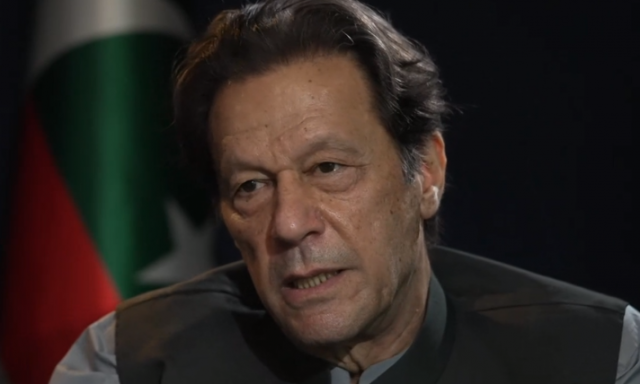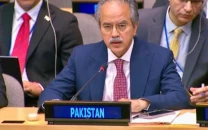Will PTI’s virtual strength translate into votes?
PILDAT president highlights importance of holding rallies to gain public support

Former premier and Pakistan Tehreek-e-Insaf’s (PTI) founding chairman Imran Khan is currently in jail and entangled in multiple cases but with a little help from artificial intelligence (AI), his party managed to deliver his first AI-generated speech in its first-ever virtual power-show last Sunday.
Within hours, the party said that the online rally generated 1.4 million views on Facebook, 1.2 million views on YouTube, one million views on Twitter live streaming, 1.5 million listeners on Twitter space and had four top trends on Twitter with more than 65 million tweets.
However, just like the PTI is not getting permission to hold in-person rallies and its on-ground activities are being obstructed every now and then, soon the social medial power-show met with disruption, which was confirmed by social media monitoring networks.
Though the attempt to hold virtual power-show was to show that the PTI is still one of the most popular parties, the question, which remains to be answered, is if the party would be able to convert its virtual political strength into physical strength on the polling day on Feb 8, 2024.
Pakistan Institute of Legislative Development and Transparency (PILDAT) President Ahmed Bilal Mehboob said that it is natural that the PTI will explore alternative avenues if it is denied opportunities to organise election campaign activities in real space.
“It is innovative of the PTI to organise a virtual public rally,” he incorporated. “Like the in-person rally, all participants in a virtual rally cannot translate into voters,” the PILDAT chief added, noting that the rally is a process through which parties and candidates try to win public support and mobilise voters.
He said the major hurdle will be disruption of internet and social media platforms.
“The PTI is acting smart to use technology, artificial intelligence, and social media for reaching out to voters and supporters,” Mehboob said, adding that this is the futuristic way of campaigning as in-person election rallies are very expensive, vulnerable to terrorist attacks and waste a lot of time of participants and organisers.
“A virtual speech can achieve 90% of the objectives of in-person speech,” Mehboob said.
In the light of prevailing circumstances when PTI leaders & supporters run the risk of arrest, he said, “The PTI has no choice but to rely on internet or virtual campaign and social media.”
Political expert Majid Nizami seconded Mehboob by saying that the PTI can be given full marks for creatively using the virtual space but the real challenge is to convert its social media strength into votes on the polling day and if they fail to do so then they won’t be able to leave a mark in the political battlefield.
Definitely, the expert said, the PTI will have to face a lot of difficulties in the upcoming general elections as the state institutions are against it and if the equation stays the same, the PTI will have to work harder than they already are.
Currently, Nizami said, the PTI candidates are facing a hard time in obtaining and submitting the nomination papers, adding that the party will have to fight a complex kind of an electoral battle as otherwise they would fail in achieving their objectives.
Nizami also pointed out that the PTI somewhat over relies on social media. For example, he recalled that PTI leaders Hammad Azhar and Yasmeen Rashid had given a call on X, then called Twitter, just before the party’s long march towards Islamabad, saying 15,000 people had liked the post but there were hardly 500 to 1,000 people present at Bhati Chowk in Lahore that day.



















COMMENTS
Comments are moderated and generally will be posted if they are on-topic and not abusive.
For more information, please see our Comments FAQ